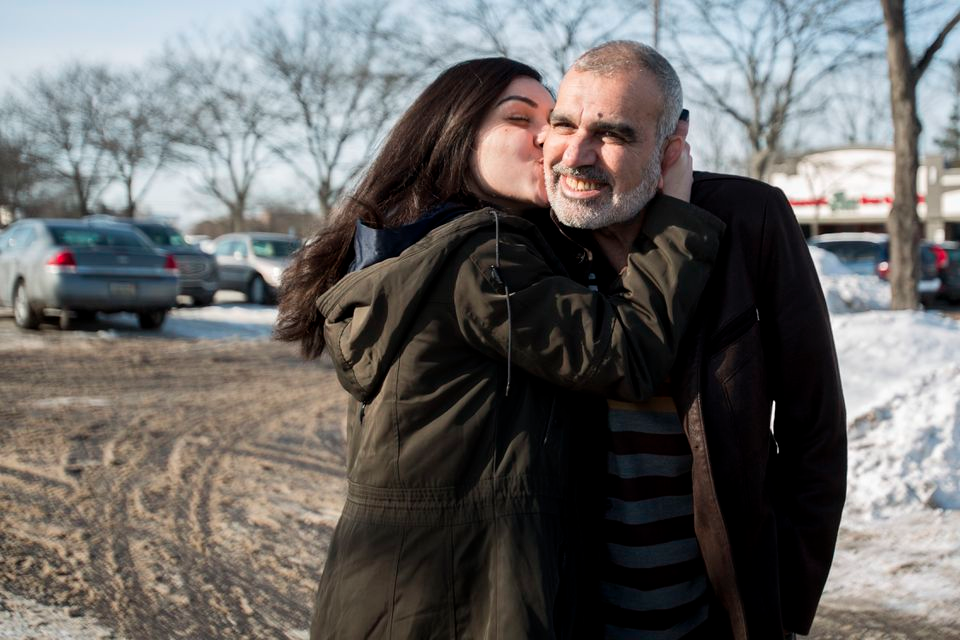Objectives:
Students will be able to…
- Analyze details from a video about an Iraqi-American journalist’s return to Iraq in order to create projects that analyze how identities are informed by traditions
- Evaluate how they define their own identities, and ways that they connect, or don’t connect, to the experience of journalist Zahra Ahmad
Warm-up: Family and Identity (Dual Identity)
- Reflect on your own, or with a partner, and write down your responses to the following questions:
- What do you know about where your family is from?
- What is a favorite tradition in your family?
- What are some things that your family does that you think others might not understand?
- Make a list of five-ten words that describe your identity.
- Now, look back at your list and circle words that might be considered opposites, or in conflict with each other.
- This lesson explores the story of a journalist who was born in Iraq and raised in the United States. Her reporting examines her reflections on identity after traveling to Iraq for the first time since her family migrated to the United States. Before analyzing her story, think what you might already know about the following terms. Then, list phrases and words that come to mind for each:
- Iraq
- United States
- Journalist
- Identity
Introducing the Resource:
Now that you have had a chance to reflect on your family and your own identity, we will watch a video and explore the story of a journalist's return to Iraq.
In February 2019, journalist Zahra Ahmad traveled from her home in Michigan to Iraq, where she was born, to reunite with her father’s family after a 20-year separation. As you watch the video, pay attention to Zahra's reflections on her own identity. Respond to the following questions as you watch:
- Why did Zahra want to travel to Iraq? When did she start to think differently about her culture?
- What landscapes and architecture did Zahra see in Iraq?
- What are some things that surprised Zahra about Iraq?
- What political rights did Zahra describe women having in Iraq?
- According to Zahra, what are challenges facing Iraqis?
- According to Zahra, how did she feel about her identity after her visit?
- Why does Zahra recommend that immigrants return to their country of origin?
If you have questions about something you see or hear, write them down to discuss with the class.
Discussion:
Reflect, and write your responses to the following questions on a separate sheet of paper.
- What surprised you about Zahra’s description of Iraq?
- How does Zahra’s description of Iraq compare to other stories you have seen or heard about Iraq?
- How does Zahra’s description of growing up in the United States compare to your experience growing up in the U.S. (Or if you did not grow up in the U.S, how does Zahra’s description compare to what you have seen/heard about the lives of people growing up in the U.S.)?
- How do you feel about Zahra’s suggestion that immigrants return and visit their country of origin? Where might you want to travel to learn more about your family’s history, and why?
- How does this story compare to other stories you often see in the news? Why do you think this story was published by the news outlet Mlive, which provides news for readers in Michigan?
Extension Activities:
- Expository Writing: Reflecting on your culture and traditions through letter writing
- Recall what Zahra shared about her family experiences and upbringing. Think: What details stood out from her reporting? Then, reflect on ways that you express your own family's traditions and cultures. Think: How would you describe these traditions—and why they are important to you—to someone who is not familiar with these traditions?
- Write an open letter to ______ that includes your reflections. Add any positive or negative experiences you feel comfortable sharing. Prepare to share with a classmate.
- Exchange letters with a partner and analyze each of your letters to compare and contrast your experiences
- Research Project: Interview a classmate about their family traditions
- Make a list: What are some ways that people might express their culture?
- Interview a classmate about traditions in their community. Use the list from step one to help guide your interview.
- Click here for tips from journalist Natasha S. Alford about ways to plan and conduct strong interviews.
- Throughout the interview, take notes on the traditions in your partner's family and/or culture.
- Create a presentation that highlights two-three key details from your interview to share with the class.
CCSS.ELA-LITERACY.CCRA.R.1
Read closely to determine what the text says explicitly and to make logical inferences from it; cite specific textual evidence when writing or speaking to support conclusions drawn from the text.
CCSS.ELA-LITERACY.CCRA.R.6
Assess how point of view or purpose shapes the content and style of a text.
